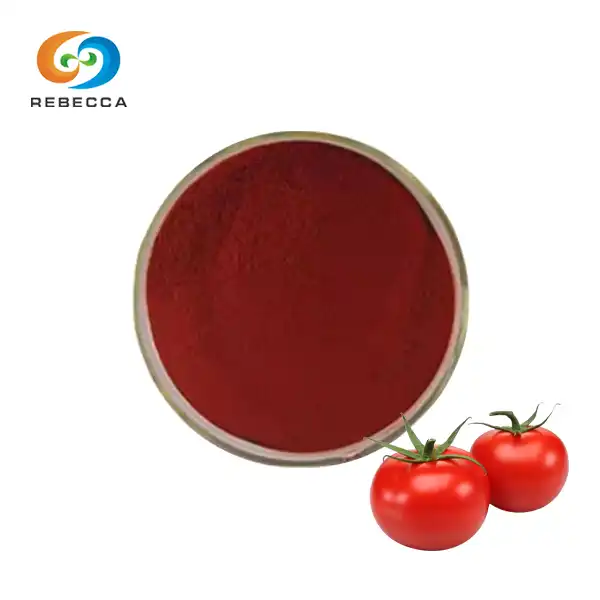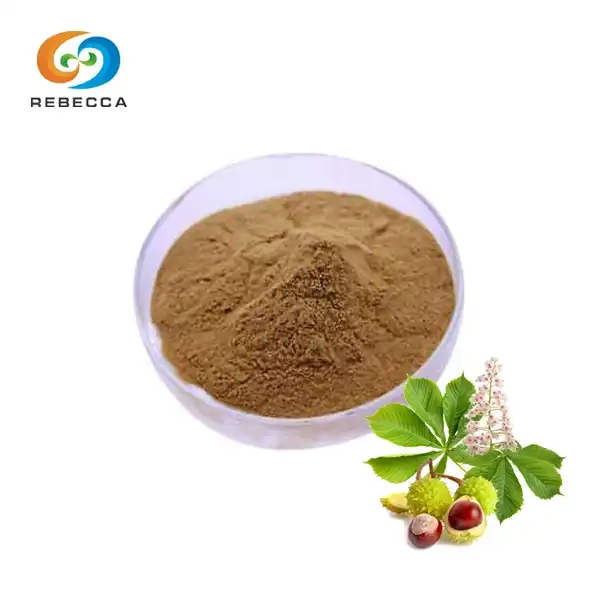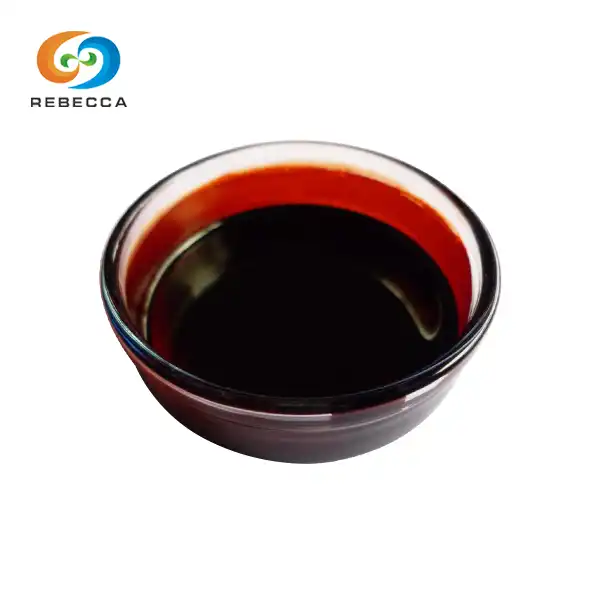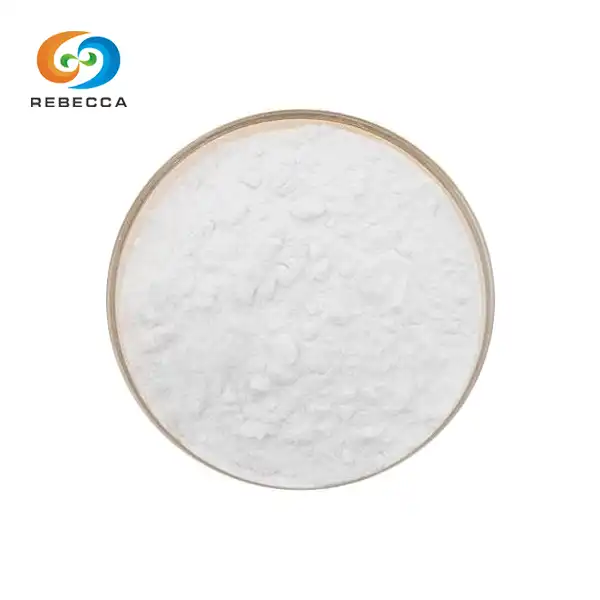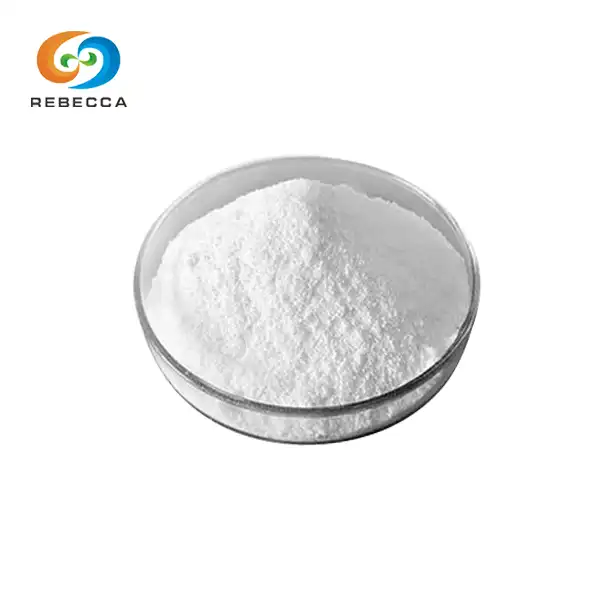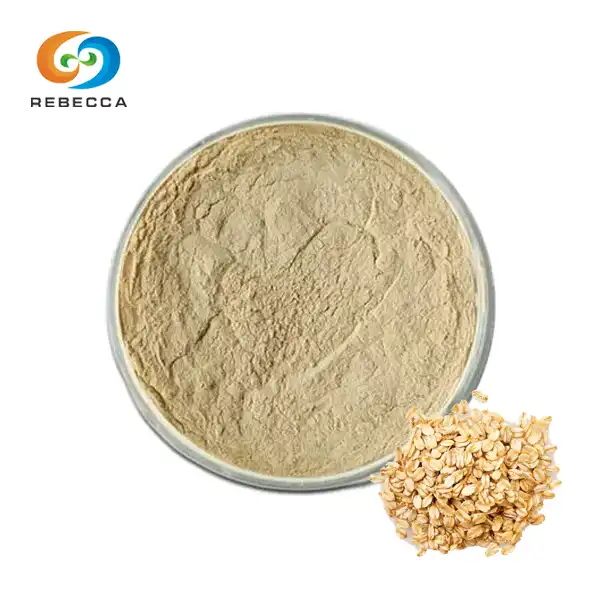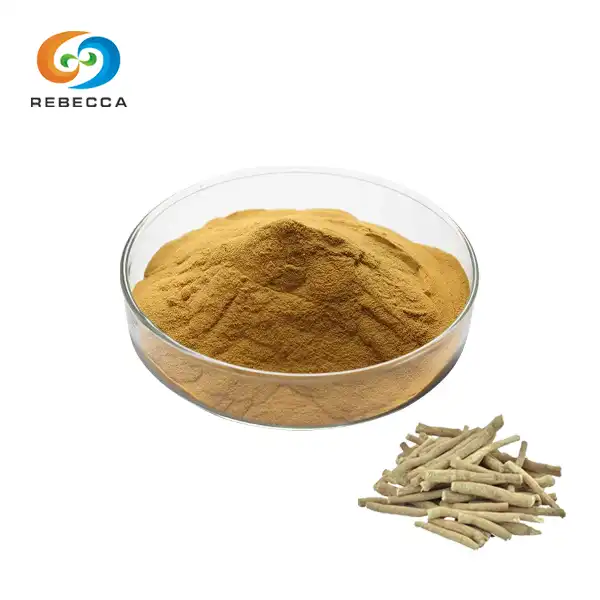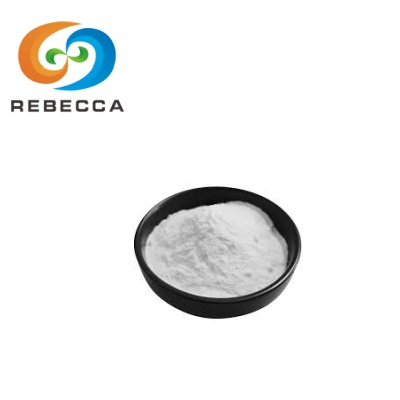Does red clover powder increase estrogen?
In the realm of natural health supplements, red clover powder has gained notable attention for its potential hormonal effects, particularly concerning estrogen. As more individuals seek plant-based solutions for wellness, questions about how this herbal remedy interacts with the body's endocrine system have become prevalent. This article aims to explore the relationship between red clover extract and estrogen, examining its composition, biological effects, and the scientific evidence behind its use. By understanding the nuances of its action, readers can make informed decisions about incorporating it into their health routines.
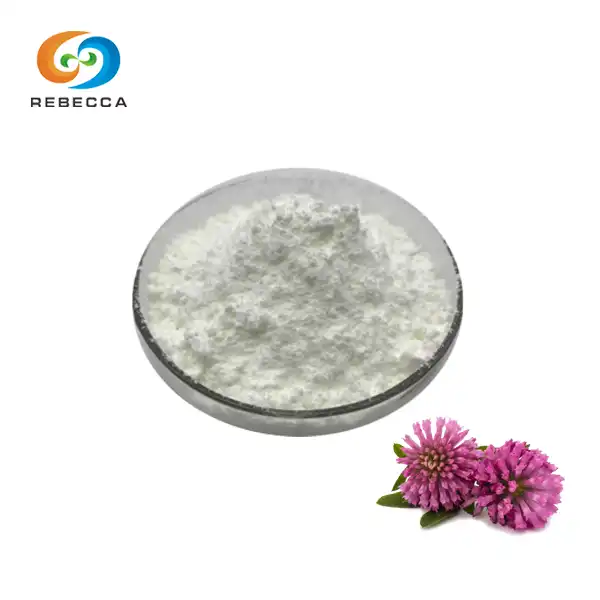
Product Name: Red clover Extract
CAS No.: 485-72-3
Specification: Formononetin 98%
Test Method: HPLC
Latin Name: Trifolium pratense L.
Contains Phytoestrogens: The Key Components of Red Clover Powder
Red clover (Trifolium pratense L.) is a flowering plant long used in traditional medicine, and its powdered form retains a rich profile of bioactive compounds. The primary substances responsible for its hormonal effects are phytoestrogens, a class of plant-derived molecules structurally similar to human estrogen. Specifically, red clover powder contains isoflavones such as genistein, daidzein, and formononetin, with formononetin often present in significant quantities—for example, in Rebecca Bio-Tech's red clover extract, formononetin is standardized to 98% using HPLC (high-performance liquid chromatography) for quality assurance.
Phytoestrogens differ from human estrogen in their chemical structure and potency, but they can still interact with estrogen receptors in the body. These receptors are found in various tissues, including the reproductive organs, bones, and brain, playing a role in regulating cellular activity. When consumed, the isoflavones in red clover extract powder are metabolized by the gut microbiome, converting into compounds that can bind to these receptors. This binding can trigger either agonistic (mimicking estrogen) or antagonistic (blocking estrogen) effects, depending on the context of the body's existing hormone levels and tissue environment.
The presence of these phytoestrogens is what gives red clover powder its reputed ability to influence estrogenic pathways. Unlike synthetic estrogen therapies, however, their action is much milder and more nuanced. This makes them appealing to those seeking subtle hormonal modulation without the potential side effects of pharmaceutical interventions.
Estrogenic Effects
The estrogenic effects of red clover powder are best understood by examining how phytoestrogens interact with the body under different physiological conditions. In individuals with lower estrogen levels, such as postmenopausal women, phytoestrogens may act as weak agonists, providing a gentle estrogen-like stimulation. This is thought to help alleviate common menopausal symptoms like hot flashes, night sweats, and vaginal dryness, which arise from the decline in natural estrogen production. By binding to estrogen receptors, they can mimic some of estrogen's protective effects on bone density and cardiovascular health as well.
Conversely, in tissues with high natural estrogen levels, phytoestrogens may exhibit antagonistic effects. They can compete with endogenous estrogen for receptor binding sites, potentially reducing the impact of stronger natural estrogens. This dual activity is known as "selective estrogen receptor modulation," similar to how some pharmaceutical drugs work. However, it's important to note that the potency of red clover's phytoestrogens is significantly lower than that of human estradiol, the primary active estrogen in the body. Their effects are therefore more about balancing or modulating estrogen activity rather than drastically altering hormone levels.
Individual variability plays a key role in how red clover extract powder affects each person. Factors such as gut microbiota composition, which influences the metabolism of isoflavones, baseline hormone levels, and overall health status, can lead to different responses. Some individuals may experience noticeable benefits from red clover supplementation, while others might notice no effect at all. This variability highlights the need for personalized approaches when using such supplements.
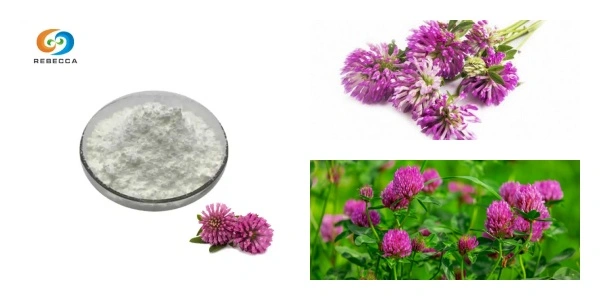
Evidence: What Scientific Studies Say About Red Clover Powder and Estrogen
Numerous studies have explored the effects of red clover powder on estrogen and related health outcomes. A review of clinical trials published in the Journal of Alternative and Complementary Medicine found that supplementation with red clover isoflavones significantly reduced the frequency and severity of hot flashes in menopausal women compared to placebo. These effects were attributed to the phytoestrogens' ability to modulate serotonin receptors and estrogen-sensitive brain regions, in addition to their direct hormonal actions.
When it comes to measuring actual changes in estrogen levels, the evidence is more nuanced. Some studies have observed slight increases in sex hormone-binding globulin (SHBG), a protein that binds to sex hormones in the blood, which can affect their availability. Changes in estrogen metabolites, such as the ratio of 2-hydroxyestrone to 16α-hydroxyestrone (markers associated with lower and higher breast cancer risk, respectively), have also been reported, suggesting potential benefits for hormonal balance. However, direct measurements of serum estradiol levels (the main active estrogen) typically show minimal or inconsistent changes, reinforcing that red clover's effects are primarily through receptor modulation rather than direct hormone production.
In terms of safety, red clover powder is generally well-tolerated when taken at recommended doses. Long-term studies lasting up to a year have reported no serious adverse effects, though mild gastrointestinal symptoms like bloating or nausea may occur in some individuals. Concerns have been raised about its use in those with estrogen-sensitive conditions, such as breast cancer or uterine fibroids, due to the potential for phytoestrogens to interact with tumor cells. However, current research on this topic is inconclusive, with some studies suggesting neutral effects and others calling for more research. As a precaution, individuals with such conditions should always consult a healthcare provider before incorporating red clover into their routine.
Rebecca Is a Red Clover Extract Powder Supplier
At Rebecca Bio-Tech, we specialize in providing high-quality red clover powder designed to meet the needs of health-conscious consumers and industry partners alike. Our product features:
- Formononetin 98%: A key isoflavone standardized for consistency and potency.
- HPLC Testing: Ensuring purity and quality through rigorous analytical methods.
- Latin Name: Trifolium pratense L., sourced from trusted agricultural partners.
Whether you're formulating dietary supplements, functional foods, or personal care products, our red clover extract powder offers a reliable source of phytoestrogens for targeted hormonal support. To learn more about our specifications, pricing, or customization options, please reach out to us at information@sxrebecca.com. Our team of experts is ready to assist with your inquiries and help you find the right solution for your needs.
References
- Cassidy A, et al. (2003). "Dietary isoflavones and human health." British Journal of Nutrition.
- Newton KM, et al. (2002). "Isoflavone supplements and bonemineral density: a randomized controlled trial." JAMA.
- Howes JB, et al. (2015). "Phytoestrogens for menopausal vasomotor symptoms: a systematic review and meta-analysis." Climacteric.
- American Cancer Society. (2020). "Phytoestrogens and cancer risk."
